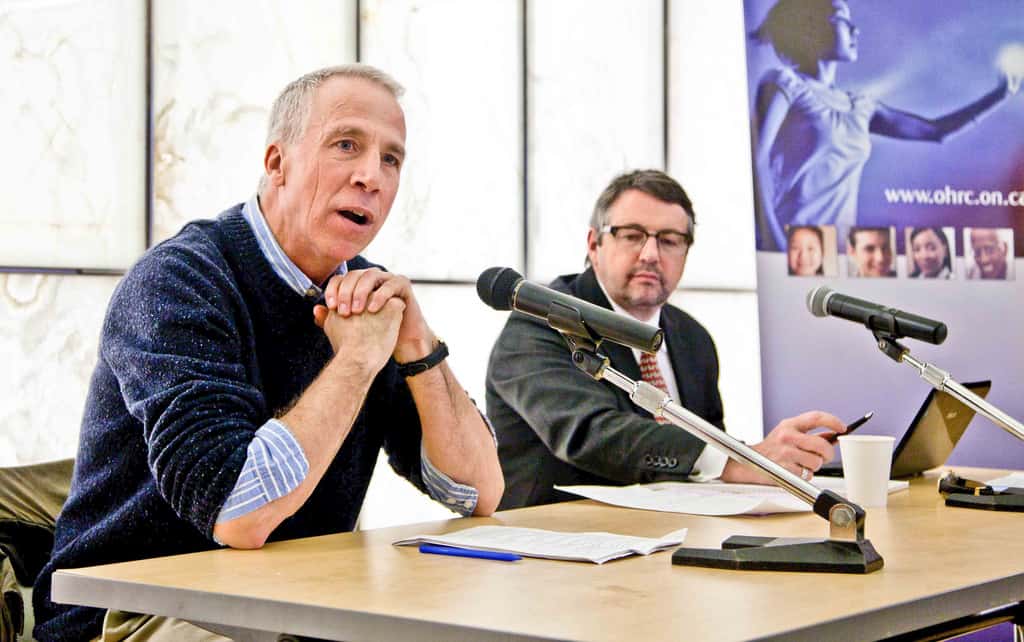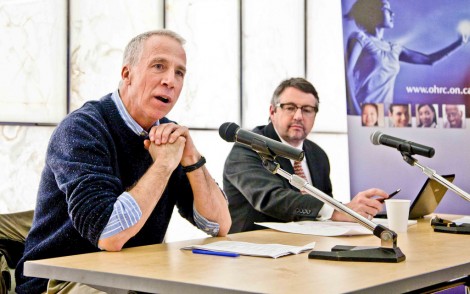Panelists and guests gathered last week at the U of T Multi-Faith Centre for a two-day policy consultation on religion, law, and human rights in the Canadian context.
Hosted by U of T’s Religion in the Public Sphere Initiative and the Ontario Human Rights Commission, the panel aimed to negotiate the contentious roles that religion and law play in public life.
The event was well-attended by faculty, students, and community members of all disciplines and religious denominations. The audience heard presentations by a number of experts in the fields of religious studies, human rights, and law.
The first segment, entitled Human Rights, Religion and Law, took place on January 11 and was opened by Pamela Klassen, U of T professor and director of the Religion in the Public Sphere Initiative, and Barbara Hall, former mayor and OHRC chief commissioner.
“The policy that we’re moving to update has been impacted by events that have occurred over the past few years,” Hall said. “We have changing times and changing questions. The answers to those questions need to be examined and updated today.”
David Seljak, chair of the Department of Religious Studies at the University of Waterloo and lead speaker of Wednesday’s panel, elaborated on Hall’s point.
He argued that religious discrimination has a long history in Canada, and that the solution is not exclusively more secularism but also a more inclusive definition of rights.
“We need to develop a sensitivity to lingering Christian privilege,” he said.
On Friday, the panel concluded with a public discussion of the legal aspects of accommodating religion in a multicultural society.
Presentations were heard from Richard Moon, a University of Windsor law professor and former Canadian Law Society Association president, and Iain Benson, a research associate at numerous South African organizations.
Moon opened Friday’s discussion with some observations on the legal character of religious rights and freedoms under the Canadian Charter.
He pointed out that, in many cases, legal questions of religious accommodation come down to finding a balance between competing interests, such as corporal punishment of children, and argued for the need to recognize both the importance of religion in the lives of believers and the practical limits of state authority.
Benson ended the panel with the idea that law and politics can produce an agreement between different groups. He argued that convergence is not possible in a diverse society and that we should recognize that some beliefs are irreconcilable.
“There is a tendency to think that if we talk long enough we’ll eventually agree, or that law and politics will make us agree. That is an illiberal conception of dialogue and process,” he said. “We are not progressing towards a state of homogeneity but are instead stuck with diversity. It’s a blessing and a curse, but it’s the earmark of a democratic society.”
Ultimately, the panel allowed for a productive conversation between policy makers, academics, and students about the role of religion in public life.
Before finishing his presentation, Benson reminded participants of the need for respect when dealing with matters of creed.
“If we start our discourses with a genuine respect for ‘the other’ then we are in a place of more honesty and respect moving forward.”



